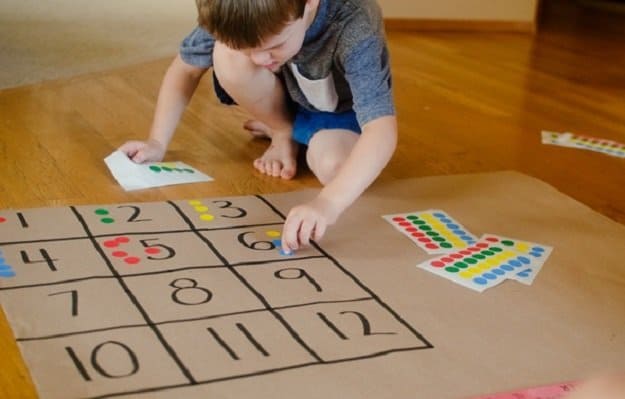Mathematics- like it or not, it’s all around us. From counting toys to calculating taxes, quantitative skills are needed and used in every walk of life from childhood till adulthood.
The sooner your child starts developing and practicing these skills, the better their comfort level with academic success in years to come. So when thinking about summer learning activities or Pre-K programs for your preschooler, consider one that, at least a few times a week, helps to build their math skills as well.
Here are some of the benefits of incorporating mathematics into early childhood learning for your preschooler:
1. Cognitive Development
Beyond just being a series of academic concepts, mathematics is a skill set. It teaches children to develop cognitive math activities that are transferrable to situations extending beyond just the classroom. Working on math problems helps children learn how to think conceptually, look for abstract patterns and relationships and sharpen practical problem-solving patterns of behavior.
2. Encouraging Curiosity
According to the National Association for the Education of Young Children, children naturally show an interest in mathematics at an early age. It is therefore important for parents and teachers to make sure that this interest is encouraged and developed in the formative years of a child’s education.
3. Future Academic Success
Having a sound foundational knowledge of mathematics is also a strong predictor of later academic achievement in children, helping establish a crucial base understanding for more complicated concepts to be taught as they progress in their education.
A study of 35,000 preschoolers, for example, found that students who enter kindergarten prepared with certain core mathematical skills are able to easily build on these established abilities and enjoy a greater degree of academic success further on in their studies.
Another series of six longitudinal studies by researchers found that strong early mathematical skills were more powerful predictors of later academic prowess in both mathematics and reading than attentional, socio-emotional or reading skills.
4. Building Life Skills
Another study examining children’s learning during the first six years of their lives discovered that positive early experiences with mathematics builds children’s confidence and allows them to develop traits such as curiosity, imagination, flexibility, inventiveness and persistence- important life skills that, as the research demonstrated, can help children succeed both inside and outside of the classroom.
The best way to cultivate a genuine interest about math in young minds is to stimulate children’s innate curiosity with interactive activities. For instance, at RARE Pre-K programs – offered at Frisco, Grapevine, Plano, and Irving recreation centers over the summer and throughout the academic year – math learning takes place in two ways: on paper and hands-on. On paper, children solve worksheets tailored specifically to their individual ability levels, with topics ranging from addition, subtraction, greater/less than, to time and money.
At the same time, they also engage in hands-on activities such as counting and measuring objects, learning patterns with shapes and playing simple addition-subtraction games and puzzles. Both paper and hands-on methods help maintain attention spans and build on children’s natural curiosity for the subject to make learning math a fun and exciting process.
Incorporating such elements into your child’s routine is a great way to kick-start their journey- because when it comes to mathematics, it’s never too early to start learning!





